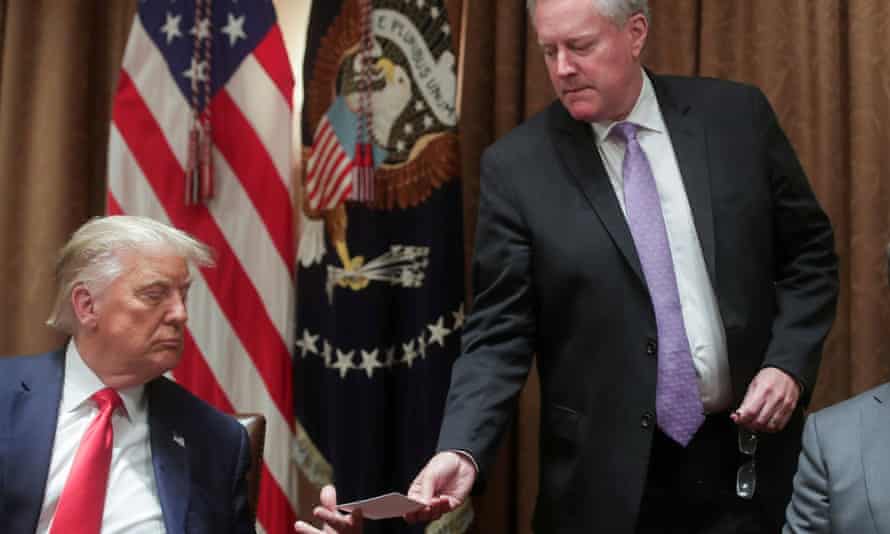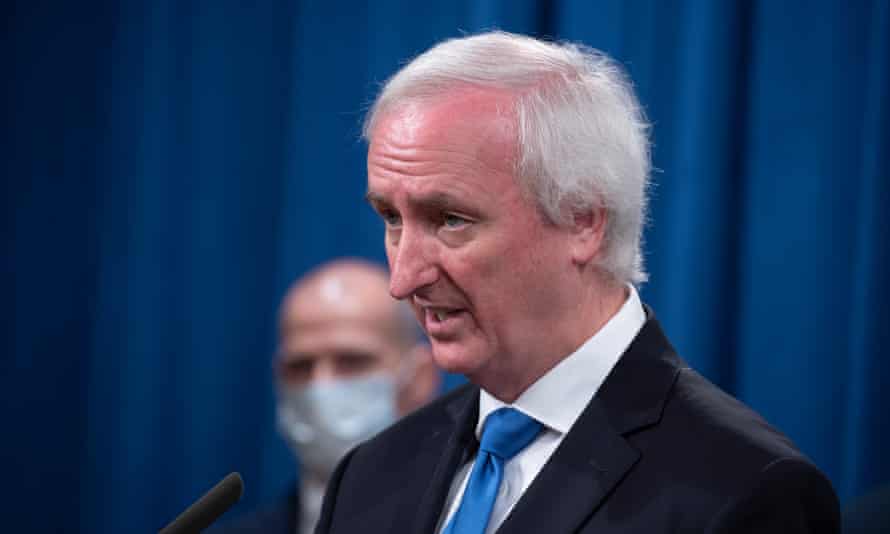Extract from The Guardian

Last modified on Wed 16 Jun 2021 05.35 AEST
Donald Trump tried to enlist top US law enforcement officials in a conspiracy-laden and doomed effort to overturn his election defeat, a campaign they described as “pure insanity”, newly released emails show.
The documents reveal Trump and his allies’ increasingly desperate efforts between December and early January to push bogus conspiracy theories and cling to power – and the struggle of bewildered justice department officials to resist them.
“These documents show that President Trump tried to corrupt our nation’s chief law enforcement agency in a brazen attempt to overturn an election that he lost,” said Carolyn Maloney, chair of the House of Representatives’ oversight committee, which released the emails on Tuesday.
On 1 January Meadows, a fierce Trump loyalist, sent Jeffrey Rosen, then acting attorney general, a link to a YouTube video detailing the “Italygate” theory. Rosen forwarded the email to the then acting deputy attorney general, Richard Donoghue, who replied: “Pure insanity.”
The documents also show that Trump pressured Rosen to make the justice department take up election fraud claims.
But Rosen refused to arrange a meeting between officials and Trump’s personal lawyer, Rudy Giuliani, who has played a leading role in pushing the conspiracy theories. Meadows asked Rosen to help arrange a meeting with Giuliani, the emails show.
Rosen wrote to a justice department colleague on 1 January: “I flatly refused, said I would not be giving any special treatment to Giuliani or any of his ‘witnesses’, and reaffirmed yet again that I will not talk to Giuliani about any of this.”
Meadows also sent an email to Rosen about alleged irregularities in Fulton county, Georgia, a state Joe Biden won narrowly. Rosen again forwarded the email to Donoghue and asked: “Can you believe this? I am not going to respond to the message below.”
Trump, through an assistant, sent Rosen an email on 14 December with documents purporting to show evidence of election fraud in northern Michigan – a debunked allegation a federal judge had already rejected.

Jeffrey Rosen, at the time the acting attorney general, refused to arrange a meeting between Donald Trump’s lawyer Rudy Giuliani and justice department officials. Photograph: Tasos Katopodis/EPA
Forty minutes later, Trump announced that William Barr, his second and loyal attorney general but who proved reluctant to back the claims of a stolen election, would resign and be replaced by Rosen.
Two weeks later, on 29 December, Trump’s White House assistant emailed Rosen and other justice department lawyers a draft legal brief they were urged to file at the US supreme court.
The department never filed the brief. Emails released by the House committee showed that Kurt Olsen, a Maryland lawyer involved in writing Trump’s draft brief, repeatedly tried to meet Rosen but was unsuccessful.
The draft brief backed by Trump argued that changes to voting procedures by Georgia, Michigan, Wisconsin, Arizona, Nevada and Pennsylvania, made amid the coronavirus pandemic to expand mail-in voting, were unlawful. Biden won all those states.
Similar arguments were made in a lawsuit filed by Ken Paxton, the Republican attorney general of Texas and a Trump ally. The supreme court rejected that long-shot lawsuit in December.
The House oversight committee has requested that former officials including Meadows and Donoghue appear for transcribed testimony. The committee previously requested Rosen’s testimony on 21 May.
Eric Swalwell, a Democratic congressman, told MSNBC: “It would be more surprising if these emails were not sent. It’s really on brand for what Donald Trump was trying to do … to weaponise his own Department of Justice to overturn the will of the American voter. Frankly, we cannot allow this to pass without consequences.”
Congress also is investigating the deadly 6 January attack on the US Capitol by a mob of Trump supporters trying to stop the formal certification of Biden’s election victory.
On Tuesday the attorney general, Merrick Garland, said nearly 500 people had been arrested in connection with the attack.
“The resolve and dedication with which the justice department has approached the investigation of the 6 January attack,” he said, “reflects the seriousness with which we take this assault on a mainstay of our democratic system, the peaceful transfer of power.
“Over the 160 days since the attack, we have arrested over 480 individuals and brought hundreds and hundreds of charges against those who attacked law enforcement officers, obstructed justice and used deadly and dangerous weapons to those ends.”
No comments:
Post a Comment